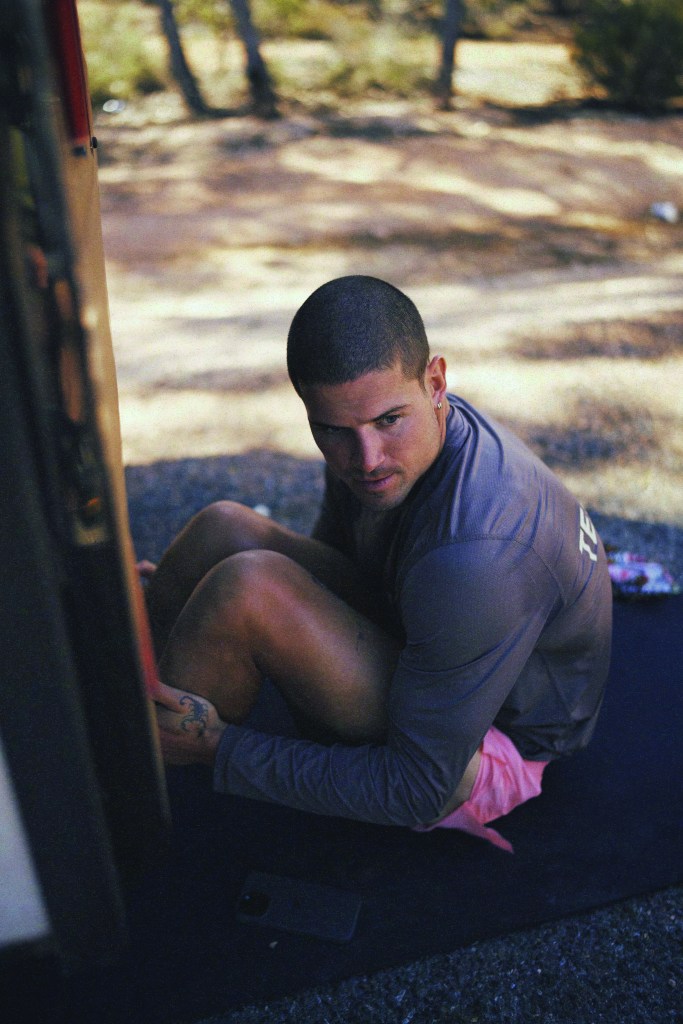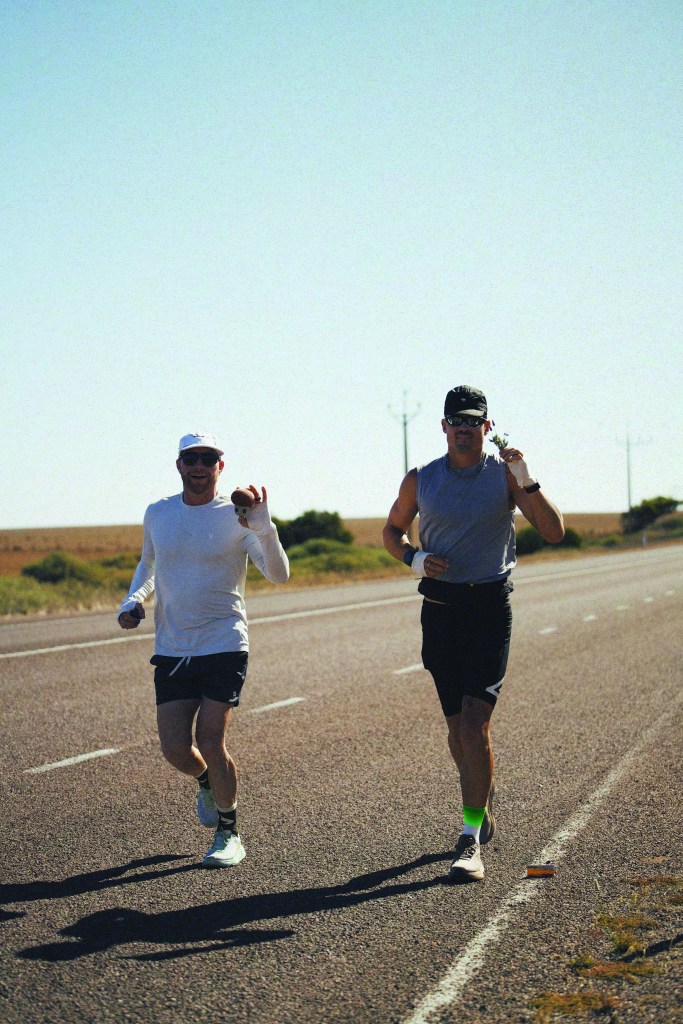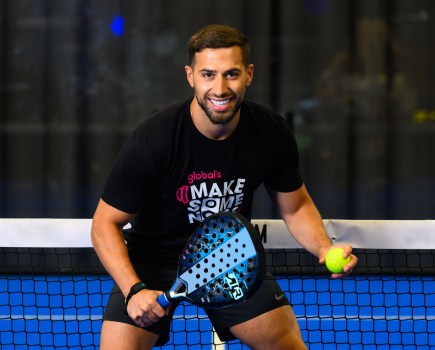Will Goodge’s Australian Ultra: Record, resilience, and responding to the ‘cheat’ accusations
Will Goodge’s transcontinental run across Australia was never going to be easy – but few expected it to become a battleground for his credibility. Covering more than 110km a day in blistering 35°C heat, the endurance athlete shattered expectations and set a new bar for human performance. Yet, even as his body broke down and hallucinations set in, a fresh challenge emerged: accusations of cheating.
In this exclusive interview with Men’s Fitness, Goodge opens up on the physical toll, the mental grind, and his clear-eyed mission to silence critics – not with words, but with even bigger, bolder feats to come…
Men’s Fitness: You’ve run across the UK, the US, and now Australia. What made this your most brutal test to date?
Will Goodge: This has definitely been the most brutal one yet. I get the feeling the aftermath will be a long one. After the US, I couldn’t push hard for 6–7 months. It just takes time for that strength to come back. Your body is wrecked; even something as simple as walking up the stairs can be a challenge after so long [of] just moving in a straight line. This has definitely been the longest consistent daily distance I’ve ever done so I imagine the recovery will take a good while.
MF: Clocking over 110km a day in 35°C heat, how did your body hold up, and what broke down first?
WG: The heat hit me hard from day one. It’s relentless out there, no shade, no escape. The first thing to really start going was the skin on my feet. Blisters on top of blisters, and then the sheer impact really hit my legs.
MF: You’ve mentioned in the post-race press about hallucinations and bone pain. What did a typical night’s “recovery” look like on this challenge?
WG: I would shower as soon as I finished and, to add a little normality to the long days, I would try to eat dinner with the crew as much as possible. High quality meat like steak alongside roasted vegetables and varying potatoes was a regular. I would lay in the bed whilst eating in Hyperice Normatec compression boots or use Compex electro-muscular stimulators to assist as best as possible. Then post dinner Lead Crew Jason would give some physio before I drank a Cadence nighttime sachet and went to sleep.

MF: Was there ever a moment when you genuinely thought, “I’m not going to make it”? What got you through it?
WG: Honestly, no. With a challenge like this, especially one this long, you can’t let doubt creep in. Once you get going, you settle into the rhythm and it starts to feel more natural. I had the best team out there with me, supporting me every step of the way, and that made all the difference.
There was one thought I had: if someone offered me the chance to snap my fingers at the start and instantly be transported to the finish line, completing the race without any memory of it, I would’ve refused. That thought alone helped push me forward.
MF: You’ve said you’ve never felt like “the best” at anything. Did smashing this record change that?
WG: I obviously wanted to get the record and would’ve been disappointed to finish and not claim it, as that is what I set out to do. However, these challenges have never really been about being the best in a traditional sense. It’s about pushing myself to a place where I have nothing left to hide behind.
MF: Do you ever get tired of proving yourself – not just to the doubters, but to yourself?
WG: To be honest, it’s not about proving myself, I am out there taking every step and I’ve accepted that people will always have opinions. I’ll be doing more 200-mile races in the future and whatever big next challenge comes, I’ll ensure it is something that is either live streamed or have people outside of my team present at all times. I’ll also push it to even bigger distances each day so it blows anything else, Australia included, out of the water. The doubters will have to go back on anything they’ve ever said about me cheating.

MF: Running for a cause like cancer support gives your effort deeper meaning. But did that mission feel heavier or more motivating over those 35 days?
WG: Running for cancer charities has been a huge part of my running journey. I found running after I lost my mum to cancer. It’s when I’m doing these challenges that I feel closest to her, especially on this one, it feels like she’s with me every step of the way. So yes, it can weigh heavy, but I wouldn’t have it any other way.
MF: Physically, how do you train to prepare for a run across an entire continent? What’s non-negotiable in your prep?
WG: To be honest I don’t do anything too crazy in terms of preparation. I have experience in these challenges now after completing multiple, so that confidence is a huge part of it. I do ultras and marathons pretty regularly in my normal training routine, and the preparation. Training for events like MOAB also stack up and help me feel prepared for a challenge like this. What differed on this one was living and training in Cape Town for six months prior, I was totally locked in.
MF: After crossing Australia faster than anyone in history, how do you avoid the post-challenge crash – mentally and physically?
WG: This isn’t something I really struggle with, to be honest. The time after a challenge is often some of the most enjoyable. This time around, we went to Monaco for the Grand Prix, and just relaxing and spending time with friends and family is always the best.
MF: What’s next? Are you chasing another record – or does it go beyond the stopwatch now?
WG: I’m not really sure when it comes to what’s next after a challenge like this. After America, I always had Australia and this record in mind. This time, it’s a bit more open. I seem to end up doing something big every couple of years, usually just ideas that pop into my head and seem like a good challenge. I think the 200-mile races are something I could really push in and make progress as an ultra-athlete. I finished 11th in my first MOAB, so I’d love to have another go and aim for the podium.
Will Goodge is part TEAM 247 the performance wear arm of Represent







